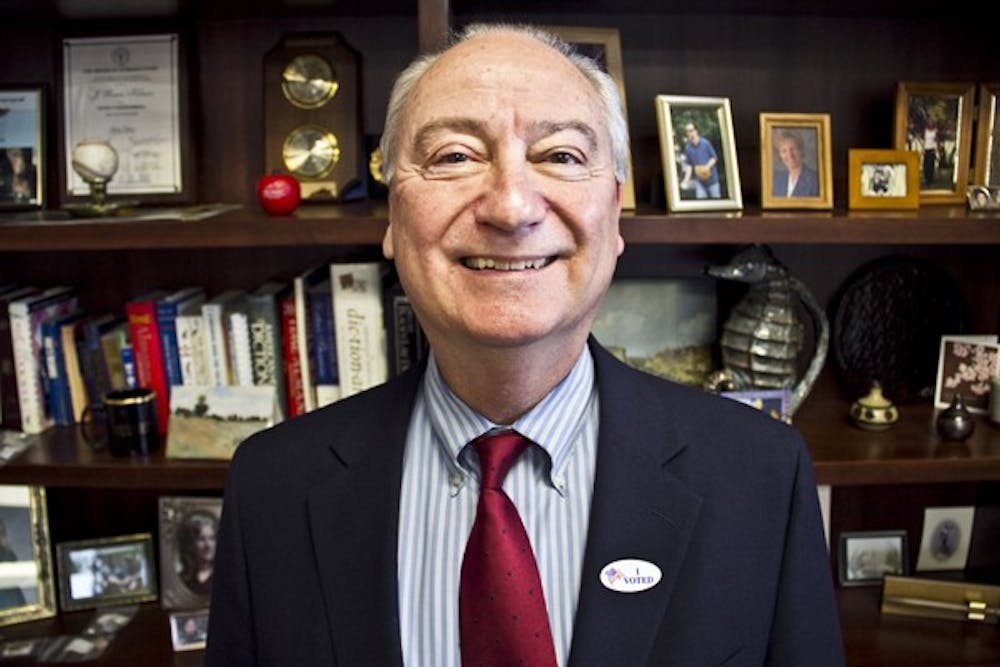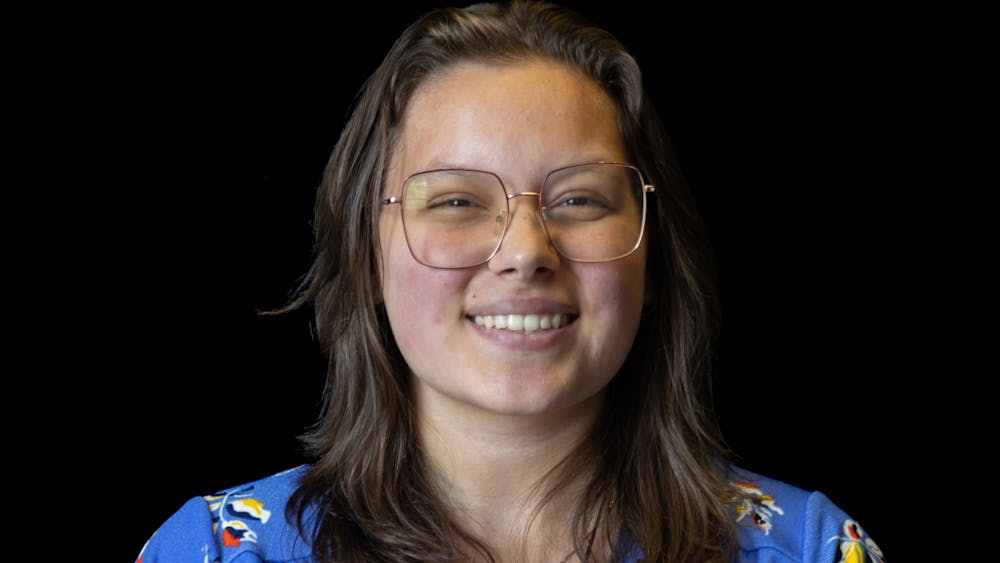Kilmer proud of time on commission as term winds down; encourages taking risks

When Mayor Bruce Kilmer’s term expires in two months, he knows he will look back fondly on all that was accomplished during his six years on the Mount Pleasant City Commission.
After spending two years as a commissioner, two years as the vice mayor and his final two years as mayor, Kilmer decided not to seek re-election Nov. 6.
As the regional administrator for the Michigan Supreme Court, Kilmer works in 27 counties with the various courts located in each, and his schedule has become more hectic over the last few months.
“After six years, I thought it was time to give somebody else a chance, especially with my work getting quite a bit busier. It’s becoming more difficult to get back here for the meetings,” Kilmer said. “I’ve really enjoyed it, but I think it’s time to take a little rest from it.”
Kilmer said really exciting decisions were made during his time on the commission, such as settling a five-year lawsuit with the Saginaw Chippewa Indian Tribe in 2010, the purchase of the Mount Pleasant Center in 2011 and adopting an anti-discrimination ordinance this July.
These outcomes are all things Kilmer said he is proud of.
“The city does not have any more tracks of land that are vacant that large, so (the Mount Pleasant Center) is a way to expand our business and tax base or home base or whatever we end up putting there,” he said. “Also, the anti-discrimination ordinance we passed was big. I really wanted that to be unanimous and it was, 7-0. It took us a while, but everybody voted for it.”
Settling the tribal lawsuit allowed for a better working relationship with the tribe on police and zoning issues, Kilmer said.
It can be difficult for people to understand what the city is responsible for when there are so many different entities in the area.
“I think that’s the thing residents don’t understand the most, is how all the entities work together and which one is responsible for what. That’s probably the most confusing thing,” Kilmer said. “In some ways, it’s more difficult to have to work with these entities, but in other ways, if we can learn to work together and collaborate then we have more resources. I think that’s a lot of what I’ve been trying to do with my time here.”
Meeting the numerous people who are also interested in bettering the community has been Kilmer’s favorite part of his experience on city commission.
Kilmer said getting to know Central Michigan University officials, tribal officials and business owners was the best part of his job as mayor.
“I’m going to continue to go to various events so I’ll get to still see people and talk to them,” he said. “It’ll be different, because I won’t see them as often. I think I’ll miss that the most.”
Kilmer said he will not miss long meetings into the night trying to balance the budget.
Dealing with the budget each year has been one of the most difficult things as a commissioner, he said.
“This has been a real extreme time with the state cutting back on revenue and our property values being level and not rising,” Kilmer said. “We’re trying to deal with the loss of money and still provide services, and we’ve been able to do that so far without raising taxes and without cutting services too drastically, although we have had to cut some.”
Vice Mayor Kathy Ling said Kilmer has been a steadying hand for the commission.
"He does a nice job running meetings, and I think he tries to make sure the commissioners are informed on what's going on, which I think is a very important role," Ling said. "He always gives careful thought to the issues. I've enjoyed working with someone who was knowledgeable and represented the city very well."
As his time on the commission is coming to an end, Kilmer is focused on balancing the 2013 budget with the rest of the commission by December. His hopes are to make sure the city is stable and has a stable income for the future with a good budget.
Another issue that is important to Kilmer for the commission to maintain is the sister city relationship with Okaya, Japan.
“To me, it’s expanding our vision,” he said. “It goes along with us being a welcoming city where foreign students can be happy and welcome here at CMU.”
Kilmer has visited Okaya twice and said the experiences were fascinating.
During his visit on the 40th anniversary of the sister relationship formation, Kilmer said the people of Okaya treated Kilmer and other visitors like royalty. Kilmer said he has faith commissioners will keep the relationship intact and prepare for the upcoming 50th anniversary celebrations in 2014 and 2015.
At the first commission meeting in January, commissioners will appoint a new mayor and vice mayor.
Over the past six years, Kilmer said he thinks his overall influence has been strong leadership and encouraging the commission to push on to new things.
That is also the message he hopes to leave the commission with.
“Even though we’re in difficult economic times, don’t hunker down,” Kilmer said. “Just deal with it and still take some risks, because, if we take those risks, we can overcome these economic difficulties more easily.”




